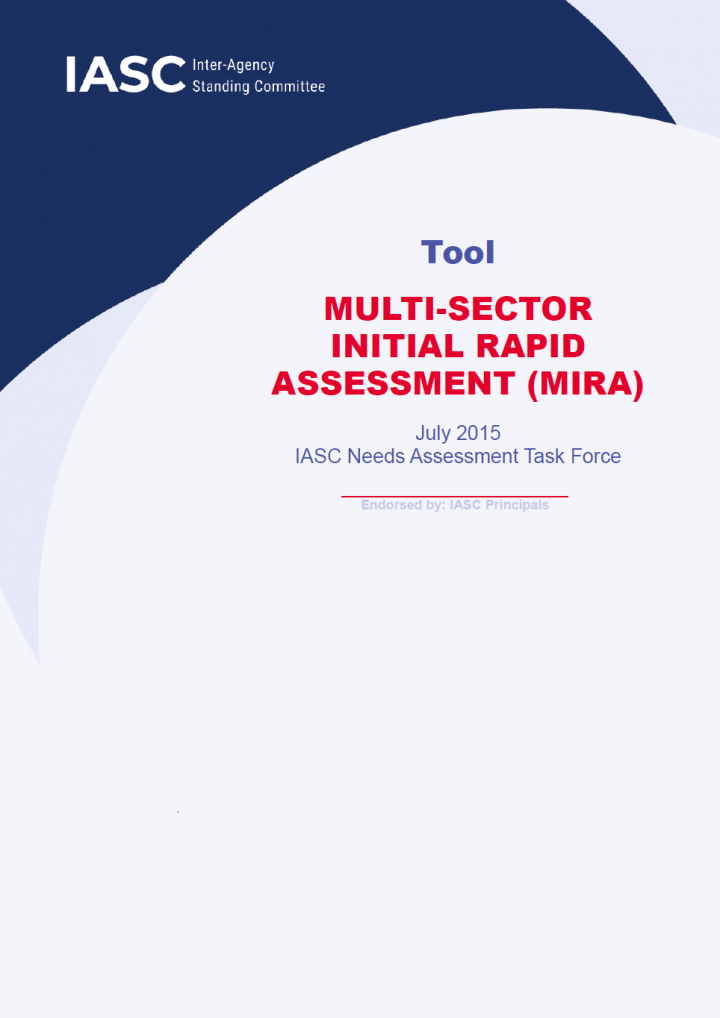Multi-Sector Initial Rapid Assessment (Mira)
IASC Needs Assessment Task Force, L3 Response, Wide Level 3 Emergency Response (2015)

Published in: 2015
Pages: 28
Publisher:
IASC
Author:
IASC Needs Assessment Task Force, L3 Response, Wide Level 3 Emergency Response
Uploaded by:
SuSanA Admin
Partner profile:
common upload
1682 Views
131 Downloads
The Multi-Cluster/Sector Initial Rapid Assessment (MIRA) is a joint needs assessment tool that can be used in sudden onset emergencies, including IASC System-Wide Level 3 Emergency Responses (L3 Responses). The IASC Transformative Agenda recognized the critical role of needs assessment as a basis for overall and cluster strategy development; agreed that needs assessment should be well coordinated, rapid and repeated/reviewed as necessary to reflect the changing dynamics, drivers and needs in each country and agreed that the results of needs assessments should inform the overall strategic planning and prioritization process needs assessment represents one step in the Humanitarian Programme Cycle (HPC) – which runs from assessment and analysis of needs to strategic response planning, resource mobilization, implementation, monitoring and evaluation of operations – and supports the response analysis conducted for strategic response planning. The Multi Cluster/Sector Initial Rapid Assessment (MiRA) is a joint needs assessment tool that can be used in sudden onset emergencies, including iAsC system-Wide level 3 emergency Responses (l3 Responses). it is a precursor to cluster/ sectoral needs assessments and provides a process for collecting and analyzing information on affected people and their needs to inform strategic response planning. The following pages serve as guidance for undertaking a MiRA, explaining the purpose of joint data collection and a shared analytical processes and outlining the key steps required, as well as associated roles and responsibilities in a protracted crisis, the consolidated analysis of needs of affected people is presented in a Humanitarian Needs Overview (Hno), either instead of, or subsequent to, a MiRA. The Hno is a result of a coordinated assessment and joint analytical process in a given country.
Bibliographic information
IASC Needs Assessment Task Force, L3 Response, Wide Level 3 Emergency Response (2015). Multi-Sector Initial Rapid Assessment (Mira). IASC
Filter tags
English Politicians and local decision makers Practitioners














